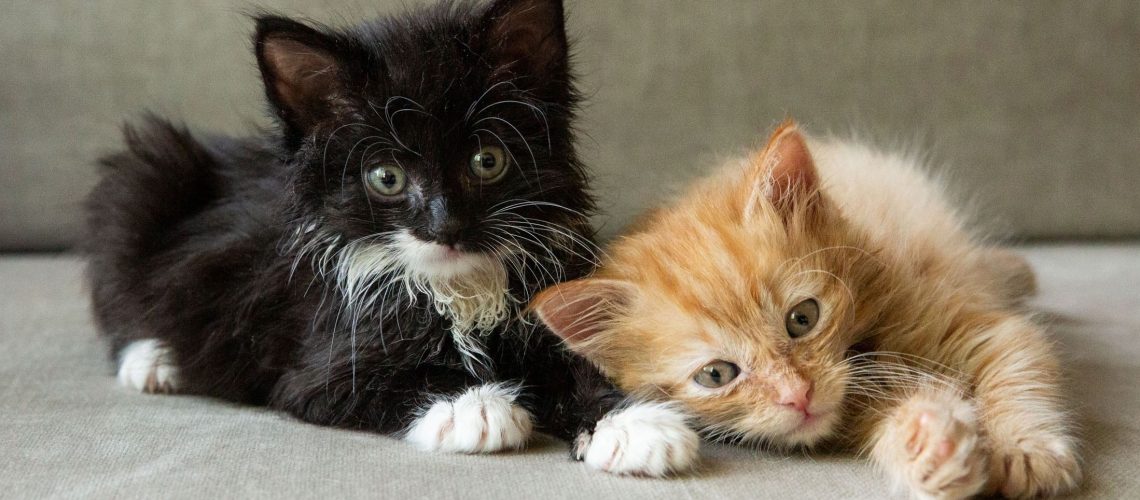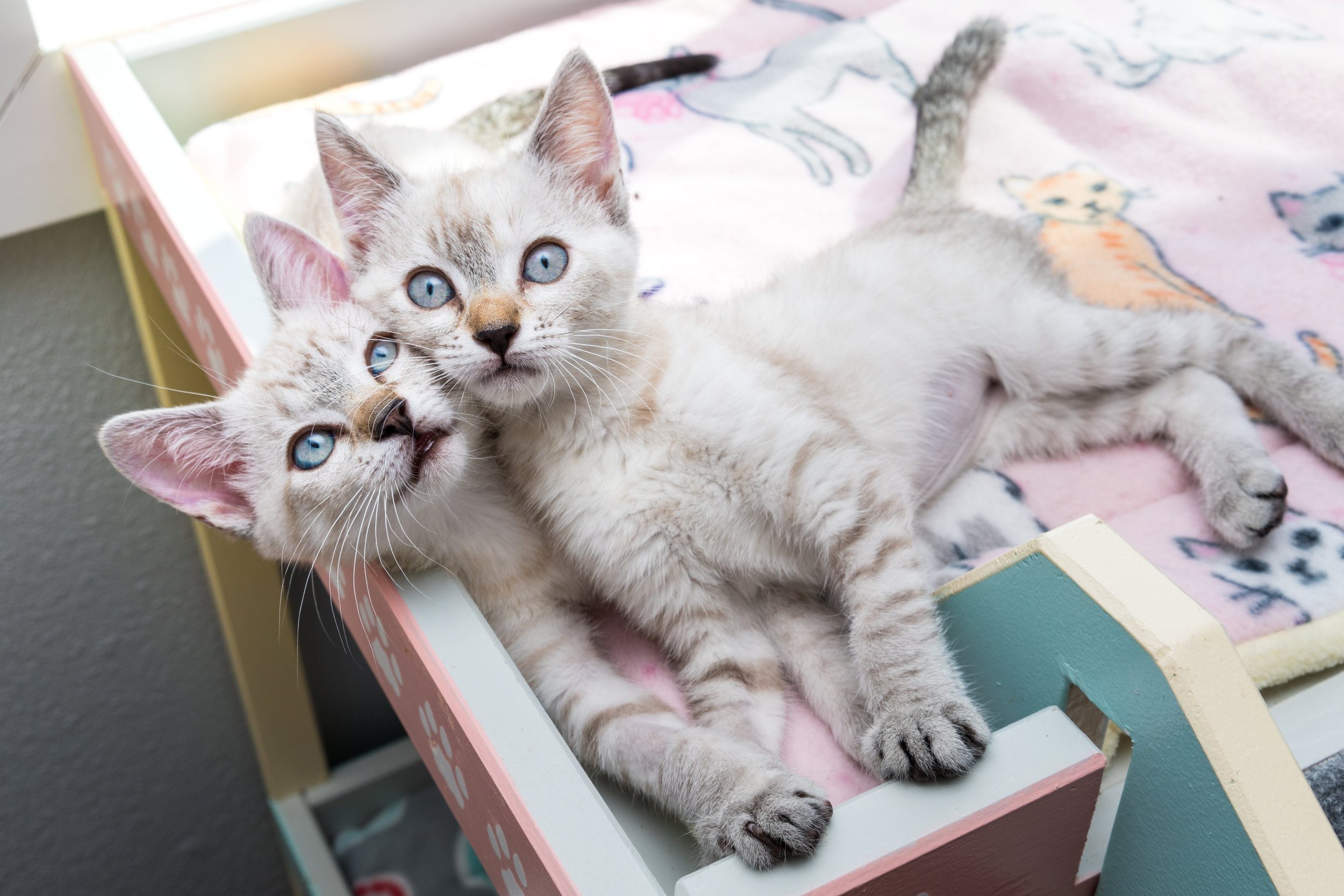Are you a proud new kitten owner? Congratulations! Having a furry friend in your life can bring endless joy and companionship. But did you know that socializing your kitten is crucial for their overall well-being and happiness?
By learning how to properly socialize your little furball, you'll not only ensure they grow up to be confident and friendly cats but also strengthen the bond between you two. In fact, studies have shown that well-socialized kittens are more likely to have better mental health and adaptability throughout their lives. So, if you're ready to embark on this exciting journey of feline companionship, let's dive into the world of kitten socialization together!
Key Takeaways:
- Start socializing your kitten early to ensure they grow up to be friendly and well-adjusted cats.
- Expose your kitten to different people, animals, and environments to help them become comfortable in various situations.
- Use positive reinforcement techniques, such as treats and praise, to reward your kitten for good behavior during socialization sessions.
- Gradually increase the level of exposure and interaction as your kitten becomes more comfortable, but always prioritize their safety and well-being.
- Be patient and understanding with your kitten's progress during socialization, as each cat may have a different pace of adaptation.
The Importance of Socializing Your Kitten
Socializing your kitten is crucial for their overall well-being and development. It helps them become comfortable and confident in various situations, making them more adaptable as they grow older. When kittens are properly socialized, they are less likely to develop behavior problems such as fear or aggression towards people or other animals.
During the first few weeks of a kitten's life, they learn important social skills from their mother and littermates. However, it is essential to continue this socialization process once you bring your kitten home. By exposing them to different people, sounds, and environments, you can help them become well-rounded and friendly cats.
Benefits of Socializing Your Kitten:
- Builds trust and strengthens the bond between you and your kitten
- Reduces the likelihood of fear-based aggression or anxiety in adulthood
- Makes vet visits and grooming experiences less stressful for both you and your cat
- Prevents destructive behaviors caused by boredom or anxiety
- Increases the chances of finding a forever home if you ever need to rehome your cat
Tips for Effective Kitten Socialization:
- Start early: Begin socializing your kitten as soon as you bring them home.
- Take it slow: Gradually introduce new experiences to avoid overwhelming your kitten.
- Reward positive behavior: Use treats or praise to reinforce good behavior during socialization sessions.
- Be patient: Each kitten has its own pace when it comes to socialization. Give them time to adjust at their own speed.
- Seek professional help if needed: If your kitten shows signs of extreme fear or aggression, consult a veterinarian or animal behaviorist for guidance.
Signs Your Kitten Needs Socialization
Why is socialization important for kittens?
Socialization plays a crucial role in a kitten's development. It helps them become well-adjusted and confident cats, capable of handling different situations and environments. Without proper socialization, kittens may grow up to be fearful or aggressive towards people and other animals. It is essential to recognize the signs that indicate your kitten needs socialization.
What are the signs that your kitten needs socialization?
1. Fearful behavior: If your kitten hides, hisses, or runs away when encountering new people or animals, it may be a sign that they need more exposure to different individuals.
2. Aggression: Kittens that display aggressive behaviors such as biting or scratching when approached by strangers or other pets may benefit from socialization.
3. Excessive shyness: If your kitten consistently avoids interactions with people or animals, preferring to stay hidden or isolated, it could indicate a lack of socialization.
4. Overreacting to sounds: Kittens who become easily startled or frightened by common household noises like vacuum cleaners or doorbells may require additional exposure to different sounds and environments.
Safely Introducing Your Kitten to New People
Why is it important to introduce your kitten to new people?
Introducing your kitten to new people is vital for their social development. It helps them build positive associations with humans and reduces the likelihood of fear-based aggression later in life. However, it's crucial to ensure these introductions are done safely and gradually.
How can you safely introduce your kitten to new people?
1. Start slow: Begin by allowing your kitten to observe new people from a distance before getting closer interactions. This gradual approach helps them feel more comfortable.
2. Use positive reinforcement: Encourage your kitten to associate new people with positive experiences by offering treats or playing with them during introductions.
3. Provide a safe space: Create a designated area where your kitten can retreat to if they feel overwhelmed during the introduction process. This will give them a sense of security.
4. Respect their boundaries: If your kitten shows signs of fear or discomfort, don't force interactions. Allow them to approach new people at their own pace.
Helping Your Kitten Adjust to Different Sounds and Environments
Why is it important for kittens to adjust to different sounds and environments?
Exposing kittens to various sounds and environments helps them become more adaptable and less fearful in unfamiliar situations. It prepares them for the diverse experiences they may encounter throughout their lives.
How can you help your kitten adjust to different sounds and environments?
1. Gradual exposure: Introduce your kitten to different sounds and environments gradually, starting with low-intensity stimuli and gradually increasing the level of exposure over time.
2. Desensitization techniques: Use desensitization techniques by playing recordings of common household noises, such as doorbells or vacuum cleaners, at a low volume initially, then gradually increase the volume as your kitten becomes more comfortable.
3. Positive reinforcement: Reward your kitten with treats or praise when they remain calm in the presence of new sounds or environments, reinforcing positive associations.
4. Create a safe haven: Provide a quiet area where your kitten can retreat if they feel overwhelmed by new sounds or environments.
Teaching Your Kitten to Interact Positively with Other Animals
Why is it important for kittens to learn how to interact positively with other animals?
Learning how to interact positively with other animals is crucial for a kitten's social development. It helps them establish healthy relationships with other pets and reduces the risk of aggressive behavior towards other animals in the future.
How can you teach your kitten to interact positively with other animals?
1. Controlled introductions: Gradually introduce your kitten to other animals in a controlled environment, such as a neutral territory or through a barrier initially, allowing them to become familiar with each other's scents and presence.
2. Supervised interactions: Monitor interactions between your kitten and other animals closely, intervening if any signs of aggression or fear arise. Reward positive behaviors with treats or praise.
3. Play sessions: Encourage interactive play sessions between your kitten and other animals using toys or treats to promote positive associations and bonding experiences.
4. Consistency and patience: Be consistent in providing opportunities for socialization with other animals, ensuring that interactions are always positive and rewarding for your kitten.
Techniques for Teaching Good Behavior to Kittens around Strangers or Guests
Why is it important to teach good behavior to kittens around strangers or guests?
Teaching good behavior to kittens around strangers or guests is essential for their safety and the comfort of others. It helps prevent unwanted behaviors such as scratching, biting, or excessive fearfulness when encountering unfamiliar individuals.
What techniques can you use to teach good behavior to kittens around strangers or guests?
1. Positive reinforcement training: Use rewards such as treats, praise, or playtime when your kitten displays appropriate behavior around strangers or guests.
2. Desensitization exercises: Gradually expose your kitten to different people by inviting friends over one at a time, allowing them to become accustomed to new faces and smells.
3. Redirecting unwanted behaviors: If your kitten exhibits undesirable behaviors like scratching furniture when guests arrive, redirect their attention by offering an alternative activity like playing with a toy.
4. Provide a safe space: Set up a designated area where your kitten can retreat to if they feel overwhelmed or need some alone time during social gatherings.
The Time it Takes to Socialize a Kitten and Dealing with Shyness or Anxiety
How long does it take to socialize a kitten?
The time it takes to socialize a kitten varies depending on their individual personality, past experiences, and the consistency of socialization efforts. While some kittens may become well-socialized within a few weeks, others may require several months of gradual exposure and positive reinforcement.
How can you deal with shyness or anxiety in your kitten during the socialization process?
1. Patience and understanding: Recognize that shyness or anxiety is natural for some kittens and be patient throughout the socialization process.
2. Gradual exposure: Introduce new people, sounds, or environments slowly, allowing your kitten to adjust at their own pace.
3. Positive reinforcement: Reward your kitten for calm behavior and gradually increase the level of stimuli as they become more comfortable.
4. Seek professional help if needed: If your kitten's shyness or anxiety persists despite consistent efforts, consider consulting with a veterinarian or animal behaviorist for additional guidance.
In conclusion, socializing your kitten is important for their overall well-being and happiness. By gradually introducing them to new people, animals, and environments, you can help them become confident and friendly companions. Remember to be patient and provide positive experiences during this process.
How long does it take for a kitten to socialize?
The process of socializing kittens can vary between two to six weeks, depending on factors such as their age, inherited personality traits from their mother and father, and early socialization experiences. While feral kittens can be weaned at 4 weeks old, they have a higher likelihood of survival if they remain with their healthy mother.
At what age is it too late to socialize a kitten?
As young kittens grow into teenage cats, they become less inclined to socialize compared to younger kittens. Once they reach 12 weeks of age or older, they become more independent, less flexible, and less open to unfamiliar situations.
How do I socialize my kitten to be friendly?
Make sure to take frequent breaks to give your kitten attention and play with them. It can be beneficial to bring your kitten to different environments, such as your friends' homes, so they can explore and experience new smells and sounds. Provide treats and toys that your kitten enjoys to create a positive experience. It's important for your kitten to stay calm and interested, without feeling overwhelmed.
How do I socialize my kitten without a mom?
Make sure to spend quality time with your kitten by holding and cuddling them regularly. Pick them up and stroke them gently while speaking in a soothing voice for at least five minutes every day. Practice holding them while sitting or walking around the room. You can also place them on a chair and gently stroke them. Over time, gradually increase the areas of their body that you touch each day.
Is 4 months too late to socialize a kitten?
If a kitten between the ages of 4 and 8 months is showing signs of social behavior and there is availability, it may be decided to place the kitten in a foster home for socialization and adoption. However, it is important to note that socializing can be a time-consuming process, especially for older kittens.
At what age do kittens bond with humans?
It is best to begin the bonding process with kittens when they are approximately eight weeks old. This is when they are most receptive to forming relationships and learning social skills. It is important to note that older kittens and adult cats can also form strong connections with their caregivers.

















